#imperial japan
Text
no matter what, help to the people of gaza should always be supported, however seeing japan speak against israel as if they aren’t the modern-day version of the imperial japanese army makes me absolutely lose my mind
#easy to move on when you refuse to acknowledge the past#japan#imperial japan#israel#idf#israel defense forces#free palestine#free gaza#free west bank#palestine#gaza#west bank#from the river to the sea palestine will be free
83 notes
·
View notes
Text

Kento Yamazaki and Anna Yamada in live action movie, Golden Kamuy (2024) by Japanese Actors Actresses
Looks like it's going to be as epic as the live action Rurouni Kenshin.
youtube
In the early twentieth century, a Russo-Japanese War veteran Saichi Sugimoto (Kento Yamazaki) scratches out a meager existence during the postwar gold rush in the wilderness of Hokkaido. When he stumbles across a map to a fortune in hidden Ainu gold, he sets off on a treacherous quest to find it.
But Sugimoto is not the only one interested, and others who knows about the gold will kill to get it! Faced with the harsh conditions of the northern wilderness, ruthless criminals and rogue Imperial Japanese soldiers, Sugimoto will need all his skills and luck—and the help of an Ainu girl named Asirpa (Anna Yamada)—to survive.
Plot Sypnosis by Anime News Network
#golden kamuy#kento yamazaki#yamazaki kento#anna yamada#yamada anna#japanese movie#j movie#jmovie#ainu#imperial japan#russo japanese war#2024 movie#Youtube
83 notes
·
View notes
Text
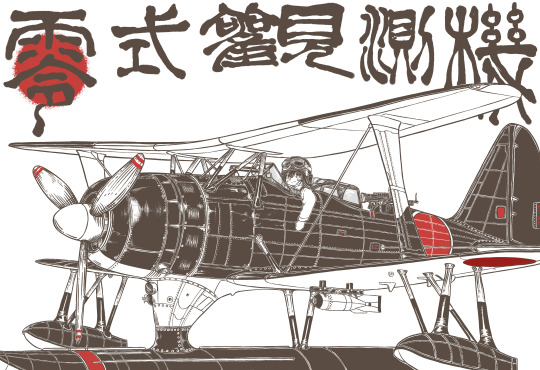
Mitsubishi F1M2
14 notes
·
View notes
Text

Mitsubishi Zero cockpit.
16 notes
·
View notes
Text
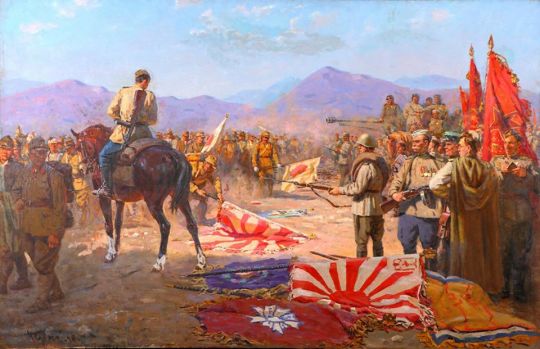
Surrender of the Imperial Japanese Army, painting by Pavel Sudakov, 1948
13 notes
·
View notes
Text
The Mistake in Comparison
So, recently someone tweeted (x'ed?) about how Japan was the showcase of why diversity doesn't matter. That Japan was "one of the most civilised, educated, dynamic, safe, tolerant, peaceful and culturally-rich nations on Earth."
It reminds me of when someone tried to argue, when queen elizabeth died, that there are examples of great monarchies, just look at the Japanese monarchy.
As a korean, we have very specific views about the japanese monarchy.
This got me thinking about the japanese occupation of korea and china. of the entire "Greater East Asia Co-Prosperity Sphere."
Then i started thinking about how we don't really view Imperial Japan in the same light as Nazi Germany. We comment on the death toll of the Holocaust but not as much of the tens of millions of chinese and koreans who died at the hands of the Japanese. How Japan escaped the fate of nazi germany. Holocaust denial is outlawed in Germany. Japanese war crime denial is part of the official curriculum in Japan.
THEN i realized my mistake.
The mistake i made in my own thinking. The Problem with that thinking is that it is a comparison. It is a feeling of injustice that the Holocaust is discussed and not the east asian genocide.
That thinking leads to antisemitism. And i have witnessed asians, who historically have no strong feelings towards jewish people (because why would they?), get some antisemitism from the seed of this thought.
Because when you start thinking that way, you start the road to resentment. Why do people care about the jews? Why don't they talk about us?
Well, it isn't the jews fault that the west doesn't talk about us.
It is victim blaming on a grand scale. and not the way to go about it.
We need to focus on educating people on what Imperial japan did. For those that know, koreans have very harsh views on the Japanese, and it is difficult to make the distinction between the Japanese people and Imperial Japan. Specifically because the Imperial Japan didn't just attempt to eliminate koreans off the face of the earth once, but twice.
But, with the exception of 3 years, Japan has had a right wing prime minister since 1996. The current one still sends offerings to the Yasakuni Shrine. it's been 4 consecutive years that cabinet members have gone to the shrine on the anniversary of the end of the war to honor Japanese war criminals. The current prime minister requested the german Chancellor's help in removing a statue symbolizing korean "comfort women" in berlin. "Comfort women" being the term used to describe the hundreds of thousands of women that were forced into sexual slavery by the Japanese.
The right wing isn't on the rise in japan, it's been in power for decades. and while many don't know about it, or ignore it because they love anime and sushi so much...
those who know the history of East asia do not ignore it. every korean alive, in country or diaspora, has at least family directly affected by japanese atrocities.
People need to know about Japan's actions, and it's government's complicity in hiding, or worse, embracing their criminal past.
I don't hold a grudge against japanese people. they are being lied to by their own government. lead to believe a fairy tale of their country's history. (much like how we do in the US). But people need to know the history here.
11 notes
·
View notes
Text

#politically incorrect#science#scientific method#meme#kyle hilton#yelling at cat meme#cat memes#unit 731#imperial japan#ethics#bioethics#unethical#unethical human experimentation#wwii japan#wwii era#wwii history
19 notes
·
View notes
Text
Many westerners are unaware of the extent of Japanese colonization. At least in my history classes (US), most of the lessons on that time period were focused on Nazi Germany. The truth is, Japan committed countless atrocities against the people of Korea, Taiwan, and much of east and southeast Asia. This included cultural erasure, slavery (Mitsubishi was built on the backs of Korean slaves), and perhaps most notoriously, comfort women.
The Korean government is trying to get Japan to pay reparations for these horrific acts to this day, but the Japanese government continues to deny its role or the extent of the crimes it committed.
So I'm posting about it, because fuck them.
On this day, March 1st, 1919, Korea declared independence from Imperial Japan. The declaration, which was written by historians and religious leaders, sparked multiple protests involving, in total, about 2 million Koreans. Japan responded with lethal force, murdering over 7,000 people, some via public execution and even crucifixion, and arresting over 46,000.
Among them was Yu Gwan-Sun (or Ryu Gwan-Sun), a 16 year old girl. After participating in the March 1st protests, she participated in several others, including one she organized in her hometown exactly one month later, on April 1st, involving 3,000 people. This protest was also suppressed with violence- Yu's parents and several protesters were murdered, and Yu was arrested and imprisoned.
But this didn't stop her. One year later, on March 1st, 1920, she staged another protest with her inmates, for which she was separated and tortured. She wrote:
Even if my fingernails are torn out, my nose and ears are ripped apart, and my legs and arms are crushed, this physical pain does not compare to the pain of losing my nation...My only remorse is not being able to do more than dedicating my life to my country.
She died of her injuries on September 28th, 1920, at 17 years old. Korea did not achieve independence until August 15th, 1945.
To this day, over a century later, Koreans honor her memory. She is often referred to as Big Sister Yu Gwan-Sun. Her sacrifice will not be forgotten.

#korea#history#japan#colonization#imperial japan#wwii#imperialism#torture mention#death mention#protests#activism#oppression#japanese empire
3 notes
·
View notes
Text
"Something fell from the sky"
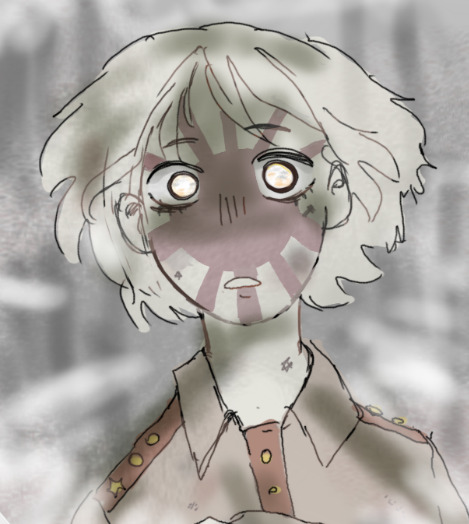
#countryhumans#countryhumans japan#japan#countryhumans art#imperial japan#Japanese empire#historical
16 notes
·
View notes
Text

Tarawa
18 notes
·
View notes
Text
Astounding that books from 1954 predicted "allied war crimes" whataboutism
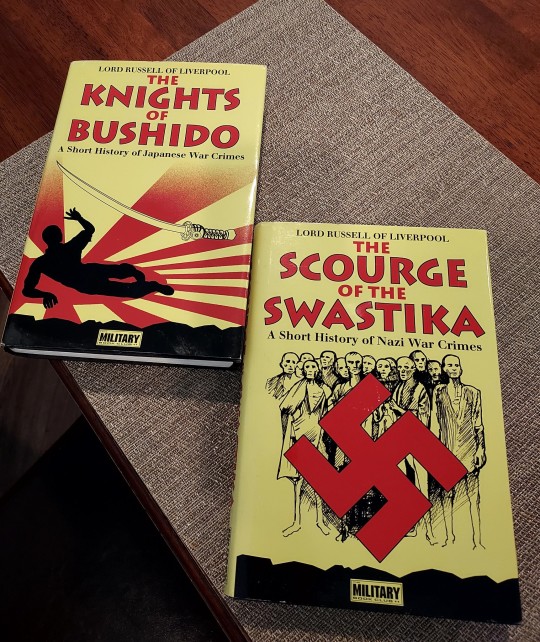
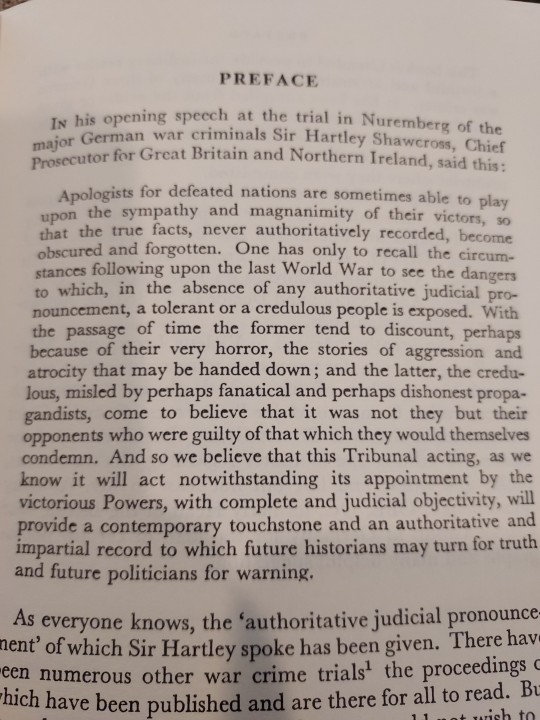
#war crimes#world war 2#nazi germany#imperial japan#books#lord russell of liverpool#nuremberg trials
21 notes
·
View notes
Photo
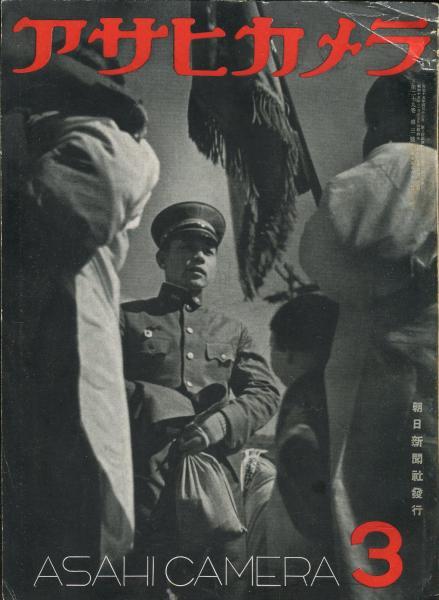
Japanese photography magazine Asahi Camera, March 1940
23 notes
·
View notes
Photo
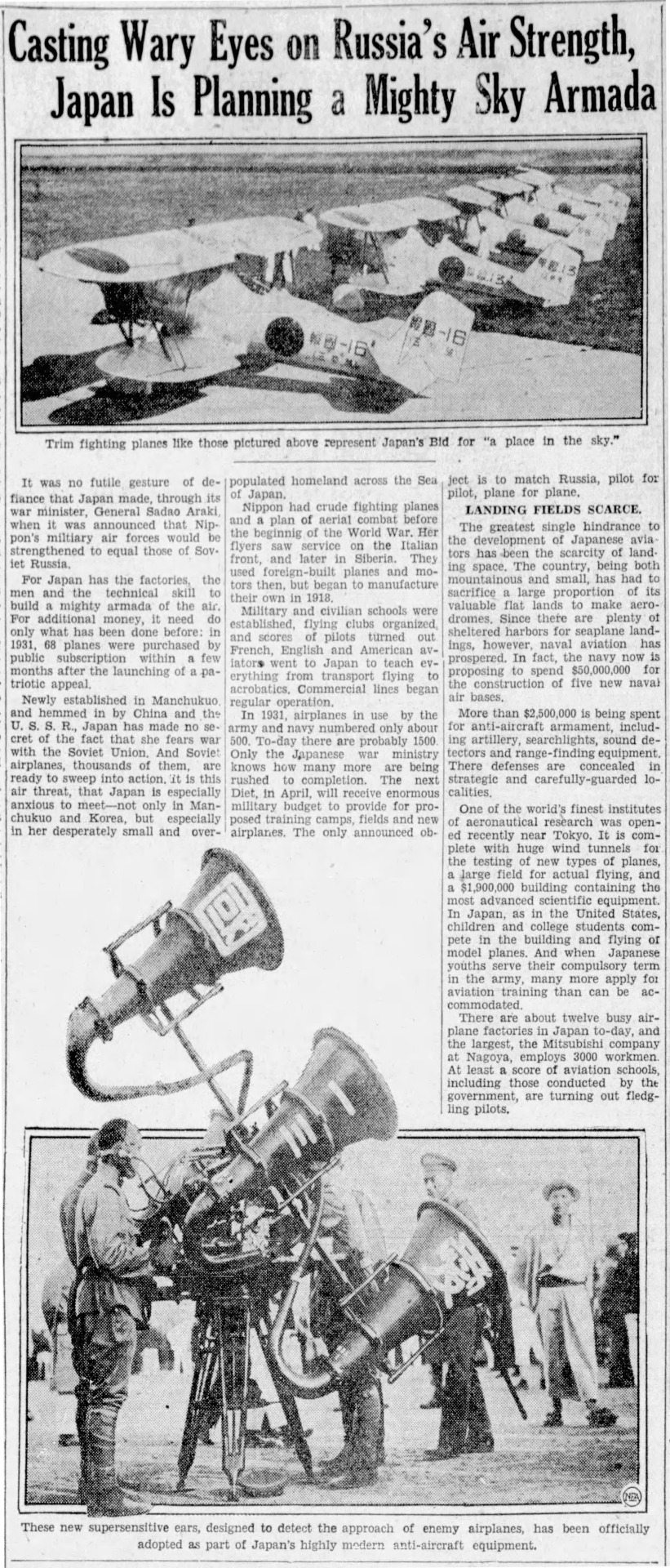
“Casting Wary Eyes on Russia’s Air Strength Japan Is Planning a Mighty Sky Armada,” Brantford Expositor. February 7, 1933. Page 3.
----
Top image: Trim fighting planes like those pictured above represent Japan's bid for "a place in the sky”
---
It was no futile gesture of defiance that Japan made through its war minister, General Sadao Araki, when it was announced that Nippon's military air forces would be strengthened to equal those of Soviet Russia.
For Japan has the factories, the men, and the technical skill to build a mighty armada of the air. For additional money, it needs do only what has been done before: in 1931, 68 planes were purchased by public subscription within a few months after the launching of a patriotic appeal.
Newly established in Manchukuo and hemmed In by China and the U.S.S.R., Japan has made no secret of the fact that she fears war with the Soviet Union. And Soviet airplanes, thousands of them, are ready to sweep into action, it is this air threat that Japan is especially anxious to meet— not only in Manchukuo and Korea, but especially In her desperately small and over-populated homeland across the Sea of Japan.
Nippon had crude fighting planes and a plan of aerial combat before the beglnnlg of the World War. Her flyers saw service on the Italian front and later in Siberia. They used foreign-built planes and motors then but began to manufacture their own in 1918.
Military and civilian schools were established, flying clubs organized, and scores of pilots turned out. French, English, and American aviators went to Japan to teach everything from transport flying to acrobatics. Commercial lines began regular operation.
In 1931, airplanes in use by the army and navy numbered only about 500. To-day there are probably 1500. Only the Japanese war ministry knows how many more are being rushed to completion. The next Diet in April will receive enormous military budget to provide for pro-posed training camps fields and new airplanes. The only announced object is to match Russia pilot for pilot, plane for plane.
LANDING HELDS SCARCE
The greatest single hindrance to the development of Japanese aviators has been the scarcity of landing space. The country, being both mountainous and small, has had to sacrifice a large proportion of its valuable flat lands to make aerodromes. Since there are plenty of sheltered harbors for seaplane landings, however, naval aviation has prospered. In fact, the navy now is proposing to spend $50,000,000 for the construction of five new naval air bases.
More than $2,500,000 being spent for anti-aircraft armament including artillery searchlights, sound detectors, and range-finding equipment. There defenses are concealed in strategic and carefully-guarded localities.
One of the world's finest institutes of aeronautical research was opened recently near Tokyo. It is complete with huge wind tunnels for the testing of new types of planes, a large field for actual flying, and a $1,900,000 building, containing the most advanced scientific equipment in Japan as in the United States, children and college students compete in the building and flying or model planes. And when Japanese youths serve their compulsory term in the army, many more apply for aviation training than can be accommodated.
There are about twelve busy airplane factories in Japan to-day and the largest the Mitsubishi company at Nagoya employs 3000 workmen At least a score of aviation schools including those conducted by the government are tinning out fledgling pilots.
----
Bottom image: These new super-sensitive ears designed to detect the approach of enemy airplanes has been officially adopted as part of Japan's highly modern anti-aircraft equipment.
#imperial japanese army air force#大日本帝國陸軍航空部隊#imperial japanese navy air service#大日本帝國海軍航空隊#imperial japan#imperial japanese army#naval aviation#air base#japanese imperialism#air force#manchukuo#manchurian incident#air defences#air raid precautions#air training#empire of japan
6 notes
·
View notes
Text
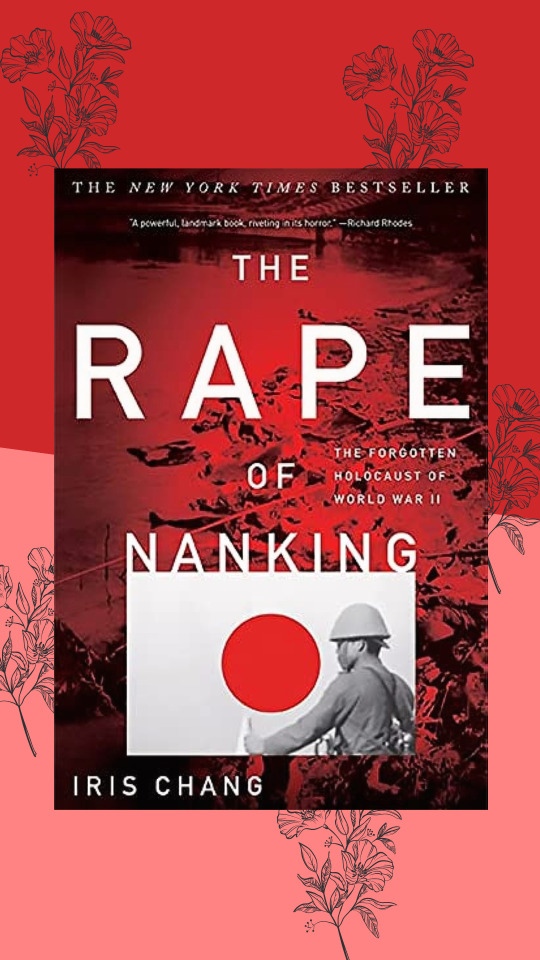
☆The Rape Of Nankings☆
-By Riya
“Germany is today a better place because Jews have not allowed that country to forget what it did during World War II. The American South is a better place for its acknowledgement of the evil of slavery and the one hundred years of Jim Crowism that followed emancipation. Japanese culture will not move forward until it too admits not only to the world but to itself how improper were its actions during World War II.”
The Rape of Nanking is a 1997 book by Iris Chang that details the atrocities committed by Japanese imperial soldiers during the Nanking massacre, a six-week period in 1937 and 1938 when Japanese troops captured and occupied the city of Nanking, China. The book is based on extensive research, including interviews with survivors, and it provides a harrowing account of the systematic rape, murder, and looting that took place.
Chang's meticulous research and vivid descriptions paint a chilling picture of the horrors that unfolded in Nanking. From the gruesome acts of violence to the stories of survivors, the book offers an unflinching look at the human capacity for cruelty and the depths of suffering endured by the victims.
As a reader, the book evokes a range of emotions, from shock and anger to profound sadness. It is a reminder of the importance of acknowledging and confronting the atrocities of the past, no matter how painful. Chang's narrative not only sheds light on the historical events but also serves as a powerful testament to the resilience of the human spirit in the face of unimaginable adversity
The book has had a profound impact on me i have found it to be deeply disturbing and upsetting. The level of violence and depravity described in the book is difficult to fathom, and it is easy to understand why it has been called "one of the most horrifying books ever written.
All the incidents mentioned in it raises questions about the nature of war, the responsibilities of nations to protect human rights, and the long-lasting impact of such traumatic events on individuals and societies. Chang's work prompts reflection on the fragility of peace and the urgent need to prevent such tragedies from repeating in the future.
Overall, "The Rape of Nanking" is a heart-wrenching and eye-opening account that leaves a lasting impression on readers. It challenges us to confront uncomfortable truths, empathize with the victims, and strive for a world where such atrocities are never allowed to happen again.
2 notes
·
View notes
Text
do I hate imperial japan? yes. does that mean I support the Hiroshima and Nagasaki bombings? fuck no.
#imperial japan#committed horrific war crimes#crimes against humanity#and yes the citizens of Japan were complicit in that to a certain extent#as any general population of an imperialistic country is bound to be#but there is nothing in the world that could possibly justify#dropping TWO atomic bombs on civilian populations#doesn't matter what country they're from or what they may or may not be complicit in#but you can never justify a civilian massacre#a massacre of a NON-COMBATANT population#numbering over a hundred thousand fatalities#and that's a conservative number#imperialism#japanese imperialism#world war 2#hiroshima#nagasaki#war crimes#mass death#anti america#fuck america
29 notes
·
View notes